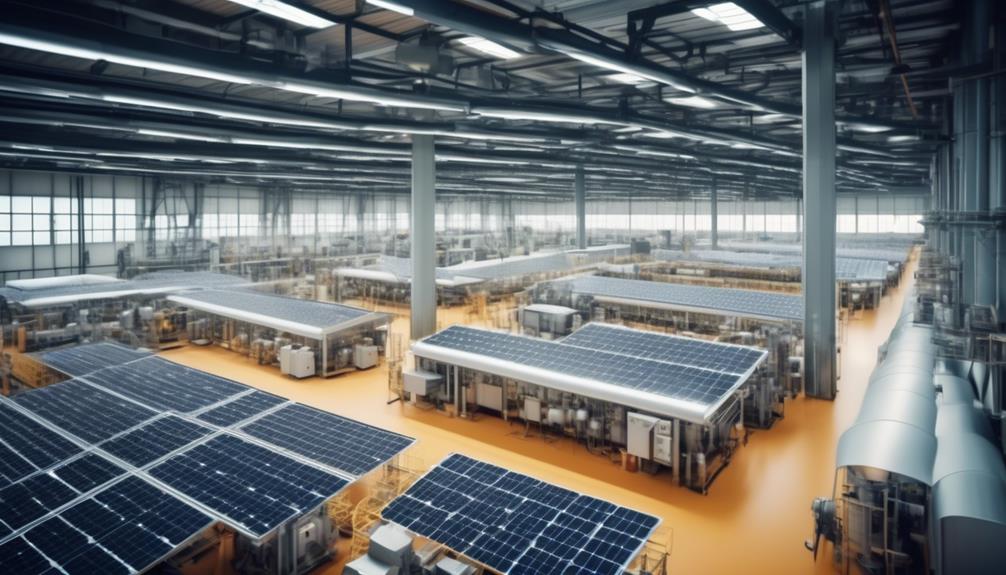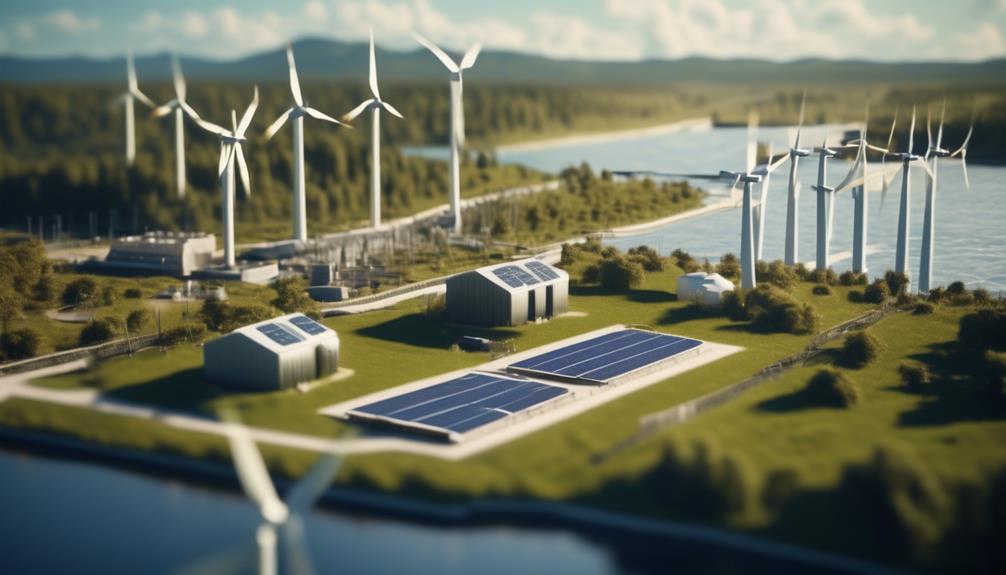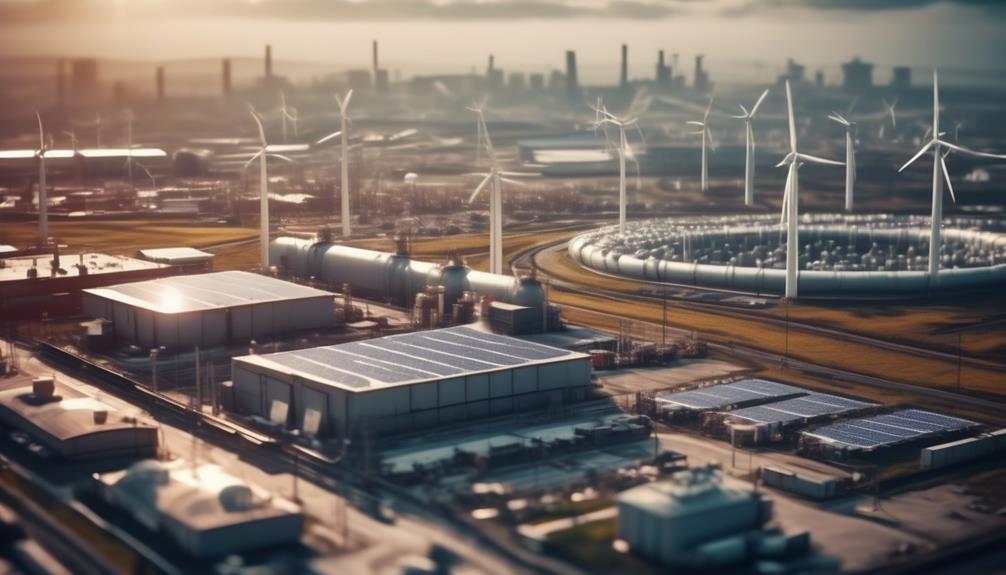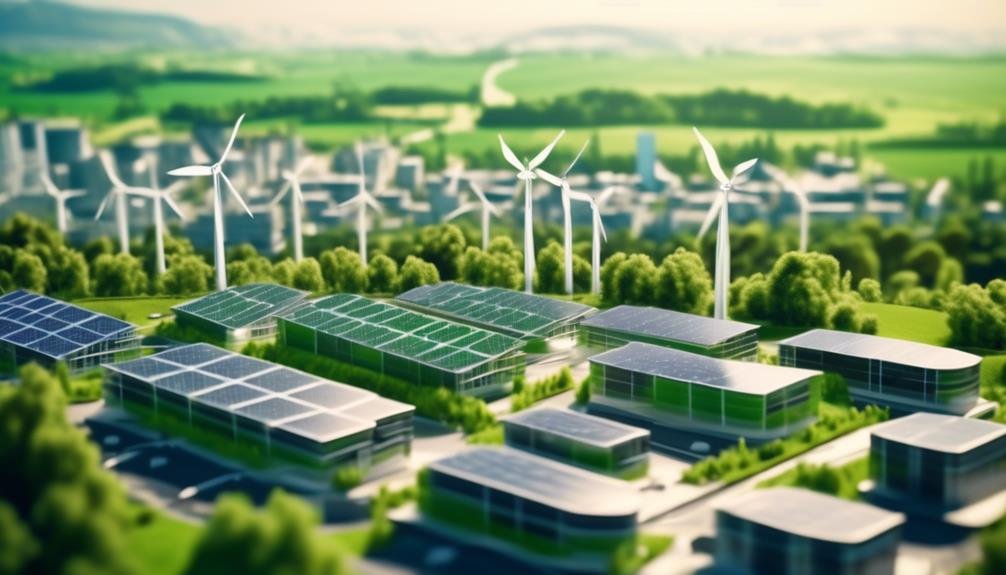In the quest for sustainability, businesses are at a crossroads, seeking effective ways to minimise their environmental footprint while maintaining, or even improving, operational efficiency. The journey towards eco-friendly energy solutions is fraught with complexity, from identifying the initial steps to integrating long-term sustainable practices. Amidst this, the challenge of balancing economic viability with environmental responsibility looms large, reflecting a common concern across industries.
Drawing from extensive experience in sustainable business practices, this discussion aims to demystify the process, offering a clear pathway to not only achieving but thriving through green energy solutions.
Understanding the diverse landscape of today’s business needs, this article is crafted to resonate with those at the forefront of the sustainability movement, from start-ups to established corporations. By focusing on actionable strategies such as energy audits, green supply chain management, and the promotion of remote work and eco-friendly transportation, we embark on a journey together.
This not only acknowledges the hurdles but also celebrates the opportunities that lie in adopting sustainable energy practices. As we delve into these best practices, you’ll find tailored insights and practical advice, ensuring that your quest for sustainability is both successful and rewarding.
Continue reading to discover how your business can contribute to a greener future, marking a positive step for both the planet and your bottom line.
Key Takeaways
- Energy audits are essential for identifying areas of inefficiency and opportunities for cost savings and reduced carbon footprint.
- Sustainable supply chain management, including green procurement and carbon offsetting, can help businesses reduce their environmental impact and attract environmentally conscious consumers.
- Remote working and eco-friendly transportation practices contribute to a greener future and promote a sustainable work environment.
- Adopting green energy solutions not only reduces operational costs but also enhances brand reputation, meets regulatory requirements, and improves employee satisfaction and productivity.
Energy Audits for Efficiency
Energy audits for efficiency are an essential tool for businesses to identify areas of inefficiency in heating, lighting, and employee behaviour, leading to cost savings and a reduced carbon footprint.
By conducting energy audits, businesses can uncover areas where energy is being wasted, whether it be through outdated heating systems, inefficient lighting fixtures, or employee habits that contribute to unnecessary energy consumption. These audits enable businesses to identify opportunities for behaviour modification and implement energy-saving technology to optimise energy use.
Behaviour modification plays a significant role in energy efficiency. Simple actions such as turning off lights when not in use, using natural lighting whenever possible, and adjusting thermostats to optimal levels can have a profound impact on energy consumption. Energy audits not only identify areas for improvement but also provide businesses with the data needed to educate and motivate employees to adopt energy-saving behaviours.
Moreover, energy-saving technology can be implemented based on the findings of energy audits. This can include smart lighting systems that automatically adjust brightness based on occupancy, energy-efficient HVAC systems, and motion sensors that control lighting in unused areas. By investing in these technologies, businesses can achieve significant energy savings and reduce their carbon footprint.
Sustainable Supply Chain Management
Implementing sustainable practices in supply chain management is crucial for businesses seeking to reduce their environmental impact and meet the growing demand for sustainability. Green procurement and carbon offsetting are two key strategies that businesses can adopt to achieve this goal.
Green procurement involves sourcing supplies responsibly and opting for sustainable packaging and shipping methods. Consumers are increasingly likely to buy from businesses with sustainable practices, making green procurement a strategic advantage for companies.
Carbon offsetting is another important aspect of sustainable supply chain management. By investing in renewable energy sources and sustainable energy solutions, businesses can reduce greenhouse gas emissions and achieve long-term cost savings. Tracking the carbon footprint through online sustainability platforms like Zellar can help businesses identify areas for improvement and access exclusive renewable energy products and tariffs.
To emphasize the importance of these strategies, we can use the following table:
| Sustainable Supply Chain Strategies | Benefits |
|---|---|
| Green procurement | – Responsible sourcing<br>- Environmentally friendly shipping methods and packaging<br>- Competitive advantage and potential cost reduction |
| Carbon offsetting | – Reduced greenhouse gas emissions<br>- Long-term cost savings<br>- Access to renewable energy products and tariffs |
Remote Working and Eco-Friendly Transport
In today’s environmentally conscious business landscape, another crucial aspect of sustainability lies in promoting remote working and implementing eco-friendly transport practices. By encouraging employees to work remotely, businesses can reduce the need for daily commuting, thereby lowering carbon emissions and promoting eco-friendly transport.
Additionally, providing incentives for using sustainable transportation methods such as public transportation, carpooling, or biking to work can further reduce the environmental impact of commuting. Supporting remote work and flexible schedules not only reduces commuting but also promotes a more sustainable work environment overall.
Moreover, utilizing video conferencing for meetings instead of traveling can significantly reduce the carbon footprint associated with business travel. By embracing these practices, businesses can reap the benefits of telecommuting while simultaneously contributing to a greener future.


















